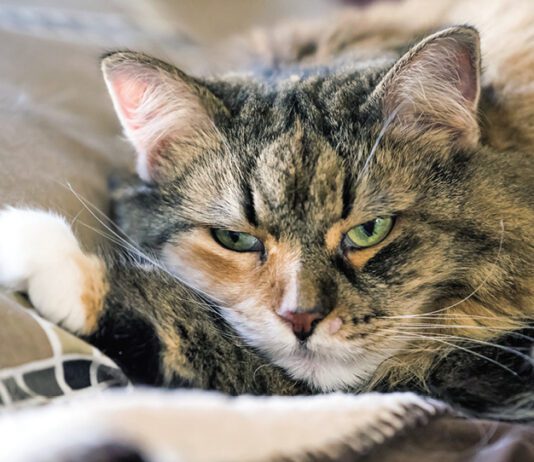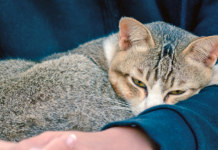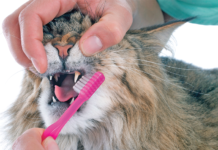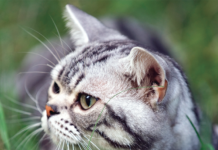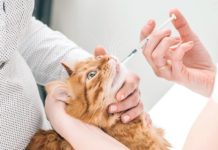Emerging Effective Cancer Option
The Animal Cancer Foundation says that of the 32 million cats in the United States, 6 million are diagnosed with cancer each year. Thats a staggering number, and researchers are working hard to find cures. Among the most recent advances in oncology is immunotherapy. While standard cancer therapies-chemotherapy, radiation, surgery-directly destroy cancers, they also may harm normal cells and tissues. Immunotherapy is different. It destroys only the abnormal cells.
Predictable Cat Behavior in Breeds
Different dog breeds are known for certain behaviors, like a Border Collie herding sheep or a German Shorthaired Pointer indicating a bird. Cat lovers have long noted the vocalizations of Siamese as an example of certain breed-specific behaviors, and now a recent study from Finland, published in Scientific Reports, found genetic connections between cat breeds and certain behaviors.
Dental Sprays for Cats
Studies have shown that 50 to 90% of adult cats are affected by periodontal disease to some degree or another. These are pretty staggering statistics for our beloved pets, especially when you consider that dental disease can be a precursor to systemic infections and organ failure as well as being painful in and of itself.
Predictable Cat Behavior in Breeds
Different dog breeds are known for certain behaviors, like a Border Collie herding sheep or a German Shorthaired Pointer indicating a bird. Cat lovers have long noted the vocalizations of Siamese as an example of certain breed-specific behaviors, and now a recent study from Finland, published in Scientific Reports, found genetic connections between cat breeds and certain behaviors.
Cats in the U.S.
The American Veterinary Medical Assocation lists these numbers for cat ownership in the United States:
Most Expensive Cats
TheRichest.com is a leading source for Internet-savvy millennials searching for information on the topics they love. With a pretty obvious focus on money, the website recently listed the 10 most expensive cats:
Prednisone vs. Prednisolone
The most commonly used steroids are the oral preparations prednisone and prednisolone, which treat a wide range of illnesses from autoimmune disease to allergies to eosinophilic granuloma complex, immune-mediated hemolytic anemia, and certain cancers.
Cats Are Resistant to Lyme Disease
Recently, my dog was diagnosed with Lyme disease. When I asked my vet about checking my cats, he said that cats did not get Lyme because of how they groom themselves. I have read several accounts of pet parents looking for help because their cat contracted Lyme. Can you please clear up this quandary and list symptoms?
Happening Now…
The TV show Americas Got Talent included a mind-boggling cat act, with some amazing tricks by very happy cats. You can seee it here at: https://youtu.be/8e0z3-iZ_TY.
Grant Renewal
The Cornell University College of Veterinary Medicine, Petco Foundation, and Blue Buffalo renewed a grant that subsidizes the cost of cancer treatments for qualifying owners of dogs and cats.
Special Feline Nutritional Needs
Who would have guessed feline nutrition could be tricky? Many major nutrients must be consumed by your cat for him to stay healthy. While your cat food likely includes the proper levels of these nutrients, its important for you, as the cat owner, to understand what they are and why they are important.
Compounded Drug Benefits
One day, you may find yourself heading for a pharmacy because your veterinarian prescribed a special drug that the pharmacist has to prepare. These medications are called compounded drugs, and they serve an important role in veterinary medicine.

